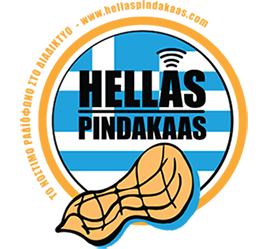Are we forgetting how to write by hand? Has handwriting lost the upper hand once and for all?
Writing and reading were, once, the new frontier for human evolution. Back and back and back it goes. The written expression of Logos was a fundamental piece of who we are and who we were meant to be. Sentient, intelligent, crafty beings. It was the crossway of imaginary and pragmatic. A bridge through which mind and heart could see their reflection in their real world. That was at the very beginning. At some point in human history, writing became a privilege for the lucky-or-rich-enough-to-be-educated few. Funny enough, nowadays handwriting ran its boomerang course only to come back to the hands of the few. The old-fashioned few. It is not a privilege anymore, but rather a burden, an obsolete art of expression, a bureaucratic archaism, an artifact for the museum, a relic of the good old days.
Writing digitally, using auto-spelling, autocorrection, voice typing, smart typing automation, electronic signature, e-cards instead of postcards, emails instead of letters, might be the next step of a fierce evolution of man and technology. But how creative writing by proxy can really be? How dexterous you need to be to just tap and swipe? Especially if the most common application of writing by proxy to-date takes place in the form of fragmented speech in social media postings and text messaging?
The art of writing a haiku is based on the ability and talent it takes to say a lot in a few, actually 3, sentences, and sound poetic too. This is such a challenge for the human mind, and its product can be a remarkably creative piece of writing. In such a case, type-writing a haiku is equal to handwriting, equally crafty and intelligent. A witty Twit could potentially read like a haiku, even if it was a mediocre haiku. If that was the case for today’s Twitter writings, then I’d be the first to say: OK, you got me! But reading hundreds of Twits a day, I can’t say I’m hugely impressed by the quality and the level of art-making or poetry.
And if you look into the world of SMS/ text messaging, the situation is spiraling toward complete and utter decline. So, is digital writing a bright future for a millennia-old tradition that fundamentally gave voice to our logos, pathos, ethos, and mythos?
Scripta manent we were taught in our Latin class in high school. Scripta manent said the ancients in their wisdom. What did they really have in mind for a couple of millennia later, I wonder? In an age, not that far away, when everything will be written in our Tablets and stored in the Cloud, will scripta manent in case of an electrical perfect storm? Or a massive blackout?
Not only we got miles away from handwriting, but we also drifted away from traditional reading. By that, I mean reading anything that is larger than a few lines of a blurb, a tag-line, a headline or a short column. Digital, fragmented writing coupled with flip-through, skim reading, makes a tricky mix that can blow in the face of human civilization, just at a time when we hand in almost absolute power to AI and our beloved gadgets. Add to that, the fact that we don’t repair anything ourselves any more, like we used to do. We just replace everything!
If we write like keyboards, read like scanners and talk like ET, are we close to losing all human capacity, and becoming ourselves droids?
When digital will eventually dominate all there is in our society, how unique and individual will we really be?
When digital will eventually dominate as the new norm, what will distinguish us from droids?
We are losing direct contact with writing by hand, just like we lost any direct hand contact with making/producing goods and, soon, services. Soon machines will write for us, instead of us using them as instruments for writing.
In the very end, tattoos will probably be the only handwriting, anyone, will ever choose to do. And that is only if the tattoo made is one of handwriting.
New year resolution: Write more! Not excessively and aimlessly. And write on recycled paper or anything that’s cleaner and more eco than bleached white A4s.










































![[:en]Elise Ntoremi & Aristotelis Papathomas back in Hellas Pindakaas (show in Greek)[:el] Η Elise Ntoremi & ο Αριστοτελης Παπαθωμας επιστρεφουν στο Hellas Pindakaas [:]](https://i0.wp.com/hellaspindakaas.com/wp-content/uploads/2016/03/%CE%A7%CF%89%CF%81%CE%AF%CF%82-%CF%84%CE%AF%CF%84%CE%BB%CE%BF.jpg?fit=694%2C311&ssl=1&resize=200%2C200)
![[:en]What defines Dutch cycling? Why is cycling so popular in the Netherlands? (Video) [:el]Ολλανδια η χωρα του ποδηλατου - ποσο ιδιαιτερα οδηγουν οι Ολλανδοι; Δειτε τα βιντεο[:]](https://i0.wp.com/hellaspindakaas.com/wp-content/uploads/2017/04/typically_dutch02.jpg?fit=800%2C466&ssl=1&resize=200%2C200)
![[:en]King’s Day through the eyes of an Outsider[:el]Η Ημέρα του Βασιλιά με τα μάτια των έξπατς[:]](https://i0.wp.com/hellaspindakaas.com/wp-content/uploads/2017/04/kingsday-io-achtergrond3.jpg?fit=1200%2C675&ssl=1&resize=200%2C200)
![[:en]Eight in ten young cyclists drink and ride on nights out, says study [:el]Οχτώ στους δέκα ποδηλάτες ίσως και να είναι επικίνδυνοι τη νύχτα, σύμφωνα με έρευνα[:]](https://i0.wp.com/hellaspindakaas.com/wp-content/uploads/2016/04/bikes.jpg?fit=775%2C436&ssl=1&resize=200%2C200)
Be the first to comment